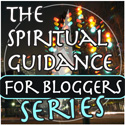It seems like good writing, the kind of rewrites, and reflection, and deliberation is in short supply, chiefly in the blogosphere and the slapdash sphere of most internet magazines. This post will reflect that flavor too. It will seem to you to (mostly) mirror what I am critiquing. It may seem instant or undercooked. It is caught in the vortex of the medium. I won’t pretend otherwise.
But, it’s also a start.
Blogs, we recall were so-named as a combination (or perhaps even slang) of the words Website and Log. An online record of passing thoughts captured in 1s and 0s for internet reader consumption. Outdated posts not recycled as fish wrapper but buried deep under a mountain of newer posts, like digital tels. The more content the more recognition, so say the experts. Plus, the all-important the SEO. We can’t forget that.
Or, at the very least blogs were and are a chance to make a mark on the world, or to a few friends with knowledge of your URL. Are they more than this? Are they less? (You can tell me in the comments section. I’m working the system.)
The Heights
And we have too-often elevated them to a place inappropriate. At times confusing there position–determining what is prolific to be paramount. Though airy they shimmy under their own weight more than they don’t. But with their own magic, they may sting or bite. They may incite vibrant feuds that recall schoolyard antics–digital spilt lips. They may seem like a sand lot variety of King of the Mountain, riffing on zingers and cultural assertions. Though not long after, they reek of the “My dad can beat up your dad!” slurs. And these too gain vigor as referenced links in posts fueling more of the same. (I won’t give you links. You probably already know of some.)
Blog posts, plentiful like the sands on our cultural shore-scape have piled up like dunes but don’t seem to become a bulwark–an art form like a Pulitzer article, or piece of superb literature, or even a good film. There are some rare exceptions and there are some blog postings that somehow change lives.
More often though something vital is traded for the speed and convenience of the quick write-up. I’m stating the obvious, right?
What is it really?
Like instant coffee, the full-bodied flavor textures and aromas of this medium don’t quite work. Chronically under-brewed, the bulk of the speedily-penned internet articles too reveal not just slapped together writing but the slapped-together thinking ungirding it. We are awash in sloppiness. I don’t exclude myself either.
The passion and angst of any given post may drown out this feature and we may be convinced that we have meat to chew on, that is, until we read really good writing.
Maybe a precise poem, birthed not just from suffering or bliss or insight but from the careful gathering of words like seed beads and the arranging of them like art and embellished patterns on a long gown of societal topography.
Maybe a travel article written not for the rushed, tired, and ravenous tourist consumer, but for the person who truly wonders about other cultures and ways of being human in distant regions. A piece of craft that may include the underlying philosophies escaping the mind of a deeply thoughtful and curious person who can and does take the time. Here there is peace of a certain kind that never makes its way properly to Facebook.
Survival
Will the banter or the sarcasm of blogging (and commenting) last through the arc of observable time, at all?
Will it survive weeks, years, decades, after the refinement of reflection and chronological distance makes its way down through it like canyon whitewater? Or will blog posts be captured digital bits of immature polemics, impolitic reverie, and dated fervor of a begone time, like Allen Ginsberg ‘s once criminally obscene 1955 poem Howl reads for us now? A once-debauched and revolutionary vocalization now a kind of caricature of a ruckus time; now a relic of a frenzied, outlying beat–a strange light from a olden day.
Will blogging be frittered like a summering free-love hippie of this time in the Connection and Communication Age, rendered not in the insensate fog of drugs, but in the fever of hot blithering and the lechery of notoriety.
What will be the classic (masterly) posts of blogs from our era, if any? What will be the wheat amongst all the gusting chaff?
Where will there be instead that lasts? Perhaps commentaries well-researched and produced in a arduous string of revisions and heartache and a probing of not just of the topic by of the writer’s own inner world. Questions and ideas that could perhaps give voice to something true, useful, universal and somehow everlasting? The shoulders to stand on.
Archival
Will blog posts be like cultural postcards, the scraps from a newly-formed, digital age whose populace didn’t yet crave more than boilerplate reports and passing thoughts? Tweets like echoes of something that mattered. Facebook the endless ticker cataloguing our lives in bits and bytes.
What, if anything, in this blogosphere and this ephemeral epoch will collese and age like well-kept merlot for future readers in future times? Things truly enjoyable and worth saving? Something, say, for high school English classes to ponder 20 years removed?
The postings might go bleached like Polaroids, capturing in anemic hues a snap swatch; the evanescent blush of the solipsistic maiden: the early 2000s cultural zeitgeist.
Not Warhol’s Pop but something slimmer.
To coin a term: Nano-Pop.
# # #
I’d love your links to blog articles that you feel will not just stand the test of time, but may well be considered paragon of blog posting as a literary art form in our times. If you can find any, please put them in the comments section.
Why not get direct delivery of the next post? Click in the sidebar to be included.
Thanks for reading today.
-Lisa




